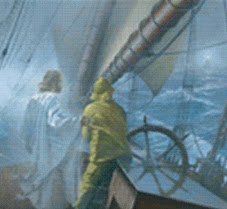 Now Thank We All Our God
Now Thank We All Our GodNow thank we all our God, with heart and hands and voices
Who wondrous things hath done, in Whom His world rejoices;
Who from our mother's arms, hath blessed us on our way
With countless gifts of love and still is ours today.
Oh may this bounteous God through all our life be near us
With ever joyful hearts and blessed peace to cheer us;
And keep us in His grace and guide us when perplexed
And free us from all ills, in this world and the next.
All praise and thanks to God the Father now be given'
The son and Him who reigns with them in highest heaven-
The one eternal God whom heav'n and earth adore;
For thus is was, is now, and shall be evermore
Martin Rinkart became a Lutheran pastor in Eilenberg, Germany at age 31, just as the terrible Thirty Years War, involving most European countries, was beginning. Being a walled city it was a political and military refuge becoming extremely overcrowded. This caused pestilence and famine, adding even more to the deaths caused by army attacks. One year before the wars were over, Rinkart was the only minister left in Eilenberg, having to conduct 50 funerals per day (including his wife's). Germany's population was reduced by 30%, 1/2 of all males, 1/3 of all towns. The Rinkart home was a refuge for victims even though there was very little for his own children and after mortgaging his future income for several years. At times 30-40 citizens could be seen brawling in the street over one crow (no, not a cow). Rinkart's health and faith remained strong, the hymns he composed during this time conveyed trust and thanks. He died shortly after peace came. To think that this long time of devastation was this mans whole ministry. He had to have constantly drown himself in his knowledge of his Savior in order to be an encouraging shepherd to his sorrowful flock, and eventually to what was left of the the city's population. Someone who had the courage to intercede for the impoverished against conquering commanders. It would seem to us that he had little to thank God for, but look at the words to this hymn he wrote. Among the years of utter devastation he still must have also seen some wondrous things, experienced love, found joy, felt peace, received guidance, adored his Lord and anticipated heaven. Having this example before me, there is no reason that I cannot always have an attitude of gratitude.
If you want to hear the song go here.
2.jpg)
2.jpg)
1 comment:
The song was beautiful and thought provoking. I have never heard it until today. Thank you for the story as well as the link to hear the song. Thanks for stopping at my blog.
Post a Comment